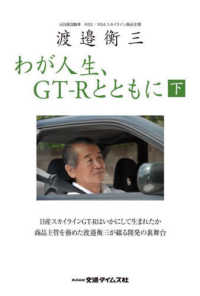Full Description
The work of French musicologist, ethnologist and critic Andre Schaeffner (1895- 1980) grew out of his first organological studies of the history of Western classical instruments in the late 1920s and encapsulated in his wide-ranging Origine des instruments de musique, which captures his studies in Paris between 1931 and 1936.
Almost 80 years after its first publication, the scientific relevance and influence of Schaeffner's primary hypothesis—that the origins of music can be traced to the human body through gesture, dance and the movements in the use of musical instruments and their ancestor tools—remains pertinent in fields which have returned to informed speculative and empirical research on the origins of music.
This first English edition is accompanied by editorial footnotes and introductory texts, and the influence of Schaeffner's thought on several generations of musicologists makes his work an essential piece of reading for ethnomusicologists, music psychologists, organologists and musicologists interested in the history of their field.
Contents
Editors' and Translators' Notes
Rachelle Taylor, Ariadne Lih, Emelyn Lih
Prefatory Remarks
Jean-Jacques Nattiez
Preface to the Original Edition
André Schaeffner
1 Origins of Musical Instruments in the Human Body
2 From Dance Jingles to Castanets
3 From Stamping Tubes to Xylophones
4 The Organology of Theater
5 Working and Playing
6 Religion and Magic
7 Solid Bodies: Rigid, Flexible, or Tensioned
8 A Genealogy of String Instruments
9 Air Instruments
10 Instruments, the Evolution of Music, and the History of Civilization








